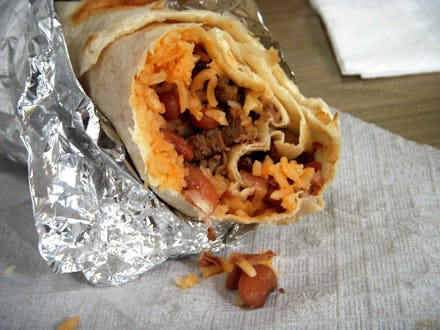5 Foods That Cause You to Be Gassy and Bloated

Let's be real. Gas and bloating is a part of being a human. In fact, we pass gas or burp about 20 times a day, according to Everyday Health.
But every once in a while there's one of those uncomfortable days when you feel especially gassy or bloated. That can be caused from a sudden change in your diet or swallowing too much air (because you were excited for your meal, no one's judging).
There are also certain foods whose nutrition content, such as too much lactose or fiber, can contribute to extra gas when going through the digestive system. To avoid excessive gas, it may be best to limit intake of these foods.
Can you guess which one of these foods is the gas culprit?
1. Kale or cucumber?
Since fiber-jammed kale is a cruciferous vegetable, it has a sugar that actually ferments in your gut, which results in gas, according to Health. Cooking down kale will soften up its fiber so it becomes smaller in the GI tract, which may reduce bloating. Fellow green produce cucumbers actually have an antioxidant that decreases swelling, called quercetin, according to Health.
2. Quinoa or lentils?
Lentils, like beans, are gas generators due to their high content of fiber and sugar, according to Health. Easier-to-digest grains like quinoa may be a more suitable base for your meal.
3. Apples or zucchini?
Apples are healthy fibrous little guys, which can cause bloating, according to Health. Zucchinis, on the other hand, are way easier to digest, according to the San Francisco Chronicle.
4. Broccoli or bananas?
Broccoli, like kale, is packed with raffinose, which translates to bloating and gas. But bananas are high in potassium, which helps keep you from retaining water, Health reported.
5. Potatoes or carrots?
French fries, mashed potatoes, home fries. Unfortunately, potatoes are high in starch, which means they're also high in gas-producing carbohydrates, according to Everyday Health. But carrots are low in carbohydrates.